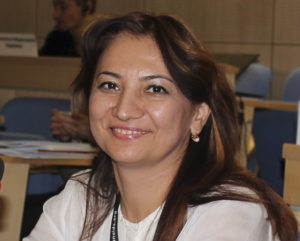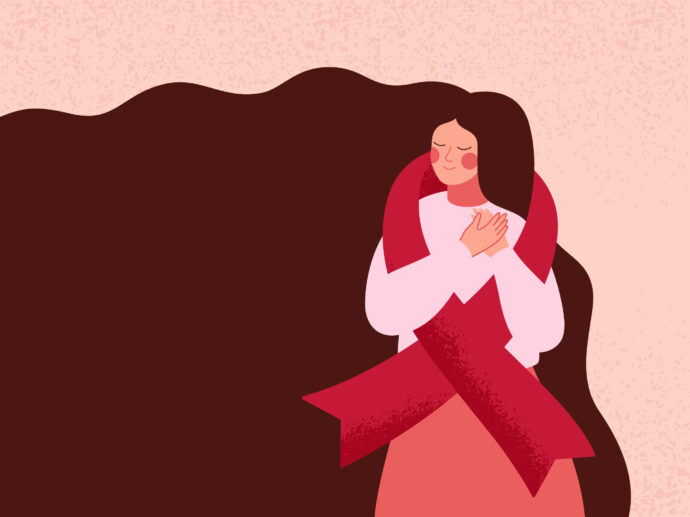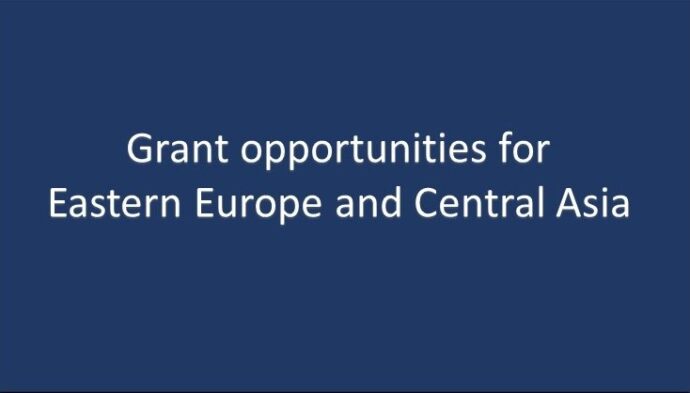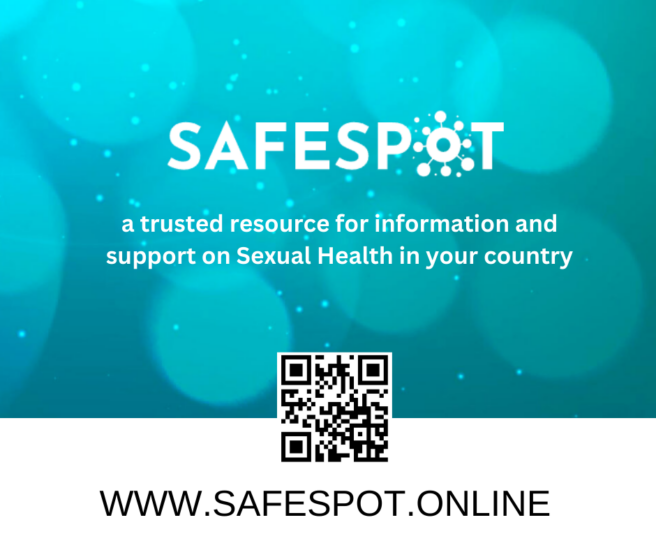Author: Olesya Kravchuk, AFEW International
Public Foundation “AIDS Foundation East-West in the Kyrgyz Republic” makes a significant contribution to public health of the country in reducing the growth rate of socially significant infections in Kyrgyzstan. The head of AFEW-Kyrgyzstan Natalya Shumskaya is telling what we should expect from the organisation in 2017, and outlines the achievements of the previous year.
– How was the year of 2016 for AFEW-Kyrgyzstan? What do you think were your greatest successes?
– 2016 was a successful and fruitful for our organization. We managed to keep our activities on HIV prevention in the prison system, including law enforcement, prevention of HIV among women who use drugs. During the last year, 1013 women received an access to health and social services. One of the achievements was that in 2016 our organization supported the Ministry of Health of the Kyrgyz Republic in the development of the clinical protocol “Pregnancy, childbirth and the postnatal period for women who use drugs.” In December of the last year this protocol was adopted. Later, we started a very difficult project with the aim to return the patients with multidrug-resistant tuberculosis (MDR-TB) to the treatment. Since August 2016, AFEW-Kyrgyzstan together with the City Centre for Tuberculosis Control in Bishkek started a project “Joint control of tuberculosis and HIV in Kyrgyz Republic.” During five months of 2016, 17 MDR-TB patients returned for the treatment; three patients co-infected with HIV were connected to antiretroviral treatment, five patients with tuberculosis and extensively drug resistant TB (XDR-TB) had the necessary tests, and their results were given to the council for inclusion in a treatment program under the new scheme. There was organized controlled treatment at home for 28 patients. The delivery of products is done 6 days a week, except Sundays. Additionally, project case managers conduct information sessions with patients with MDR-TB and their inner social circle, monitor the side effects of anti-TB drugs, and, if necessary, deliver drugs to relieve the side effects. They also maintain regular contact with doctors. In January of 2017 we increased project staff. It was done for the full coverage of all MDR-TB patients who need to receive treatment at home and assisting them to diagnosis and friendly services. Two case managers and a social worker were hired.
– How is the work of the research department of your organization that you created two years ago?
– The Department continues to work successfully. Over the past year, the researchers conducted a qualitative study among the inmates of correctional facilities that are getting ready to be released. It was called “Prisons, injecting drugs and the environment of risk of HIV infection.” This is a continuation of the positive experience of effective cooperation of AFEW-Kyrgyzstan with medical school researchers from Yale University and the State Penitentiary Service of the Kyrgyz Republic. This study aims to describe and research the quality of the program of methadone substitution treatment in the penitentiary system of Kyrgyzstan and civil society. The recommendations based on those results will be offered to the country to optimize harm reduction programs.
– One of the main directions of your work is cooperation with the police and the prison systems. Please tell us, how is this cooperation going? What is the role of AFEW in it?
– AFEW cooperates with the Ministry of Internal Affairs for 10 years already. In 2016 our organization has provided technical support to the Ministry in carrying out monitoring visits to all the regions of the country. The aim of the visits was to control how the law enforcement officers perform the instruction on HIV prevention. In addition, we organized and conducted four trainings for the staff responsible for the official trainings and for non-governmental organizations on the reform of law enforcement agencies. It is important that the civil sector supports current reforms, and it is important that law enforcement officers assist the execution of the State Programme on HIV.
AFEW is also working with the penitentiary system of the country for more than 10 years. We work together in three areas: technical assistance and coordination, increasing the capacity of staff and providing direct services to prisoners. In 2016 we worked first in six and then in four institutions to promote the goal 90-90-90. We provided services for people who inject drugs (PIDs), told them about HIV and the ways of transmission, motivated them to pass the test for HIV. We actively worked with people living with HIV at the stages of realising of the diagnosis, preparation for therapy, start of therapy, development of adherence to treatment. One of the achievements, of course, is to extend the work on the colony-settlements. Before, prisoners there fell of HIV prevention services, as there are no medical units there, and they usually have no documents for getting help from the civilian health organizations.
– In October AFEW-Kyrgyzstan helped to sign a memorandum of cooperation of four key groups. Please, tell us what these groups are and why their teamwork is so important? How is this cooperation going now?
– Unfortunately, there is mutual stigma within the key groups. Cooperation can help to overcome barriers and build partnerships. The leaders of key groups started to work closer. They discuss new joint projects, research abstracts for AIDS2018 conference in Amsterdam. Together they will carry out activities to reduce stigma and discrimination in relation to other key groups through the mini-session, for example, PIDs for LGBT and sex workers’ organizations. Since last year, we have been inviting all the participants of memorandum for the event and, of course, they also invite us for their events.
– In February, you will host a training for the members of the Country Coordinating Committee on HIV/AIDS (CCC) project BACK UP-Health. Tell us more about it. What are other areas of your work with the CCC?
– Starting from July 2016, AFEW-Kyrgyzstan will implement the project “Harmonization and consolidation of resources to fight HIV infection and tuberculosis in Kyrgyzstan.” It will be done with the financial support of GIZ, program Back Up-Health. With this project we want to improve the coordination mechanisms in the country’s health care system. We want to involve civil society in the discussion on the reform of CCC, and we also want to increase the capacity of the Committee. In February of 2017 AFEW-Kyrgyzstan plans to host a seminar for members of the CCC to prepare the Country Request for continued funding in the state funding for 2018-2020. The following groups will take part in the seminar: members of the Committee for the preparation of applications for resource mobilization and harmonization of CCC; CCC board; members of the Advisory Working Group, which were included by the Kyrgyz Ministry of Health; national experts who work on the preparation of the request for continued funding who will directly collect information and write application; international consultant; head of the expert working group on writing requests for funding, and also key partners from the public and international sectors which may influence decisions and who expressed their readiness to provide technical assistance in the preparation of high-quality country request to the state financing from Kyrgyzstan. During the workshop, participants will act as experts and will share their knowledge and experience with each another. They will also learn how to fill the forms for the requests, will learn the new priority areas of TB and HIV, which are included in national policies and programs, will discuss and analyse the share of public funding, make mapping of the services, clients and funding. Actually, the main purpose of this seminar is to assist the CCC, experts and other stakeholders in the preparation of high-quality application. We want everyone to have one vision and one structure of the request, so that the process of approval of the CCC members is efficient and fast.
– What are AFEW-Kyrgyzstan plans for the year of 2017?
– AFEW-Kyrgyzstan spent its first three years as a local non-governmental organization. The most important achievement is that we were able to successfully implement its first strategic plan and to develop partnerships with international and donor organizations. In 2017 we will review the strategic plan of the organization. Of course, the priority for the board of the organization has been and continues to be ensuring of the stability of the organization.





